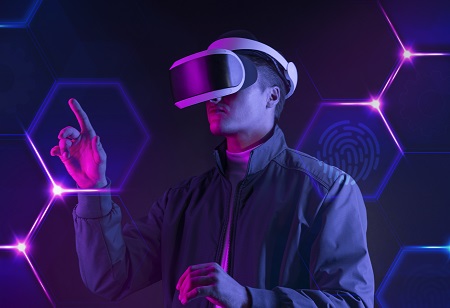
The Internet of Things (IoT) has promptly gained ground, and one of the latest trends is the surge in IoT-powered voice-activated devices, like smart speakers, which have seen a 55% increase in sales in the last few years. This indicates a growing preference for voice-based interaction in our connected lives. This rise of IoT (Internet of Things) technology is transforming our interaction with consumer electronics. From smart fridges to fitness trackers, IoT has effortlessly integrated these devices into our daily lives, reshaping how we live and interact with technology. According to a recent study the global consumer electronics market is poised to reach a remarkable $1.5 trillion by 2025, largely driven by the adoption of IoT devices. This growth signifies a fundamental shift in how we engage with the world around us. Think of IoT as the neural network connecting our digital world. Just as our nervous system allows us to react to stimuli, IoT enables our devices to intelligently connect and communicate. It's creating smart environments in our homes and workplaces, enhancing convenience, efficiency, and safety.
With IoT, daily tasks become more streamlined and effortless. From smart thermostats that adjust the temperature based on our preferences to voice-controlled virtual assistants that can perform various tasks, IoT devices make our lives more convenient and efficient. We can now control and monitor our homes remotely, ensuring that everything is in order even when we are away.Consider a smart home equipped with IoT devices. When you wake up, the thermostat from Smart Home Innovations has already adjusted to your preferred temperature, your coffee maker starts brewing, and your smart mirror displays your daily schedule. These devices seamlessly coordinate, making your morning smoother and more efficient.
Nassia Skoulikariti Director of IoT Programmes at the Mobile Ecosystem Forum (MEF) says - 'Consider a smart home equipped with IoT devices. When you wake up, the thermostat from Smart Home Innovations has already adjusted to your preferred temperature, your coffee maker starts brewing, and your smart mirror displays your daily schedule.These devices seamlessly coordinate, making your morning smoother and more efficient'
With so many devices collecting and sharing personal data, it is important to ensure that privacy and security measures are in place. As more and more devices become interconnected, the potential for cyber threats increases, making it necessary to stay vigilant and up-to-date with the latest security protocols. By prioritizing IoT security, we can continue to enjoy the convenience and efficiency that these devices bring to our daily lives while minimizing the risks associated with interconnected technology.Aprominent IoT home security camera system from SafeGuard Systems experienced a significant security breach. Hackers infiltrated the cameras, compromising users' privacy. This incident underscores the importance of robust security measures and the need for regular updates to protect IoT devices and personal data.
Rajesh Maurya, Regional Director, India & SAARC, Fortinet says - “It’s clear that isolated security devices don’t solve today’s cybersecurity challenges, companies need something different. They want integrated security, from IoT to the cloud, with actionable analytics across their multi-vendor networking and security solutions, all delivered through a single pane of glass view.
The Role of IoT in Sustainable Living is gaining significant attention as it offers numerous benefits, including energy conservation, waste reduction, and efficient resource management. By integrating IoT devices into various aspects of daily life, such as smart homes and smart grids, individuals can monitor and control their energy consumption, leading to a more sustainable and environmentally friendly lifestyle. Furthermore, IoT technology can enable optimized waste management systems, smart agriculture practices, and intelligent transportation systems, all contributing to a more sustainable future. Moreover, the use of IoT devices in industries and manufacturing can greatly enhance resource management and reduce waste production. By utilizing sensors and data analytics, companies can identify areas of inefficiency and implement strategies to minimize resource consumption and maximize output. This not only benefits the environment but also improves the bottom line for businesses. Overall, the integration of IoT technology into various sectors of society holds immense potential for creating a more sustainable and greener future.
“IoT has offered significant new opportunities to improve the efficiency of buildings, raise the productivity of employees, and help in development of innovative services”, says Prabhu Ramachandran, Founder and CEO, Facilio Inc.
Connected living through IoT integration in consumer electronics is no longer a vision of the future. The global IoT consumer electronics market is expected to experience a robust 22.3% compound annual growth rate (CAGR) from 2023 to 2028. By 2025, it's anticipated that around 75% of households worldwide will possess at least one IoT device, highlighting the widespread adoption of IoT in consumer electronics on a global scale. As we embrace these technologies, the potential for a more connected and convenient future seems limitless. These advancements not only improve our convenience but also have significant implications for sustainability. By connecting our devices and appliances, we can optimize energy usage, reduce waste, and make our homes more eco-friendly. Through IoT integration and sustainable product designs, we are making significant strides toward a greener and more sustainable future.
We use cookies to ensure you get the best experience on our website. Read more...